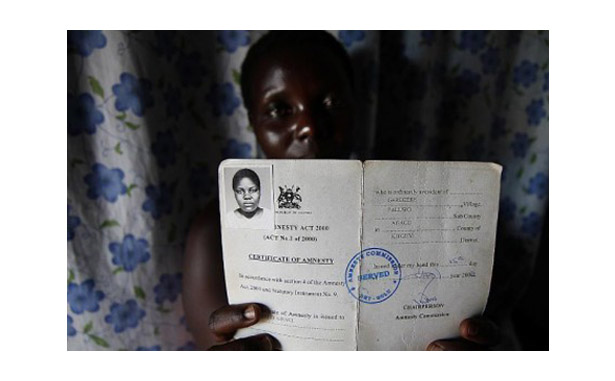
The policy, which was originally contained in “Part II” of Uganda’s Amnesty Act of 2000, had been hugely instrumental over the course of several years in encouraging thousands of LRA combatants – and members of other armed rebellions in Uganda — to peacefully surrender. However, when the Amnesty Act was set to expire in May of last year, the Ugandan government decided to remove Part II from the Amnesty Act before extending the remaining elements of the law for an additional 12 months. As a result, dozens of Ugandan members of the LRA (both men and women) who have defected and returned home over the past year, have found themselves in a legal grey area – unlikely to face prosecution, but also lacking any legal protection or support from the government.
Under the newly-revived amnesty policy, mid- and lower-level LRA fighters are eligible for amnesty if they surrender peacefully, while ICC-indicted commanders, Joseph Kony, Domenic Ongwen, and Okot Odhiombo, are not eligible. Additionally, Part II of the Amnesty Act grants Uganda’s Minister of Internal Affairs the authority to identify particular individuals (most likely some senior LRA commanders) as ineligible for amnesty.
While some international groups have expressed concerns that Uganda’s amnesty policy does is not aligned with international human rights law, supporters of the amnesty policy believe that it necessary for transitional justice and reconciliation in Uganda. Supporters also argue that an amnesty policy will strengthen current efforts being made in Democratic Republic of Congo and Central African Republic to encourage LRA combatants to defect.
Learn more about how Invisible Children is working to increase LRA defections and protect civilians HERE.
(Photo credit: Resolve)
Think people should hear about this?